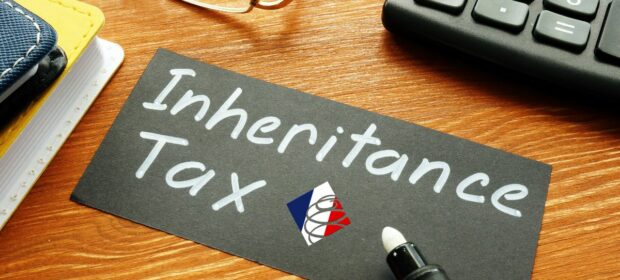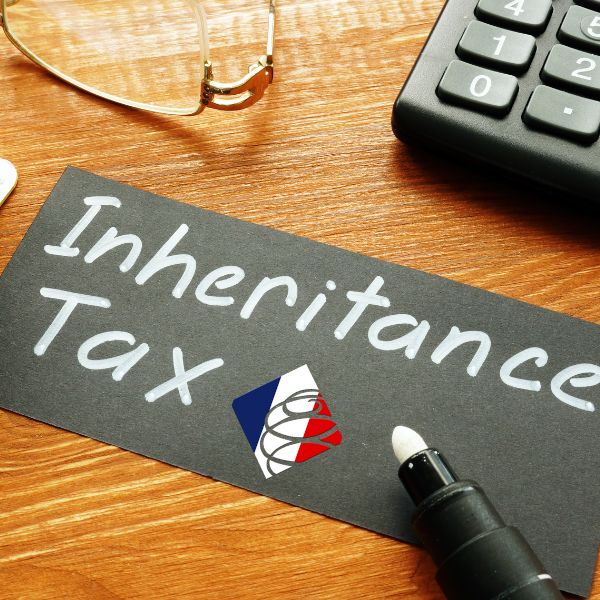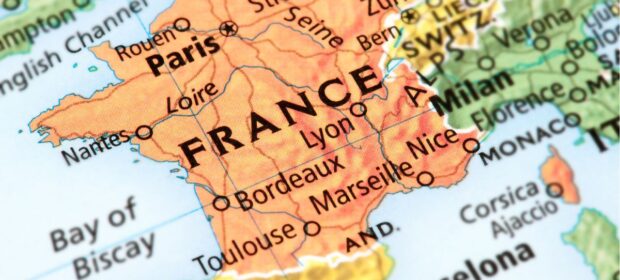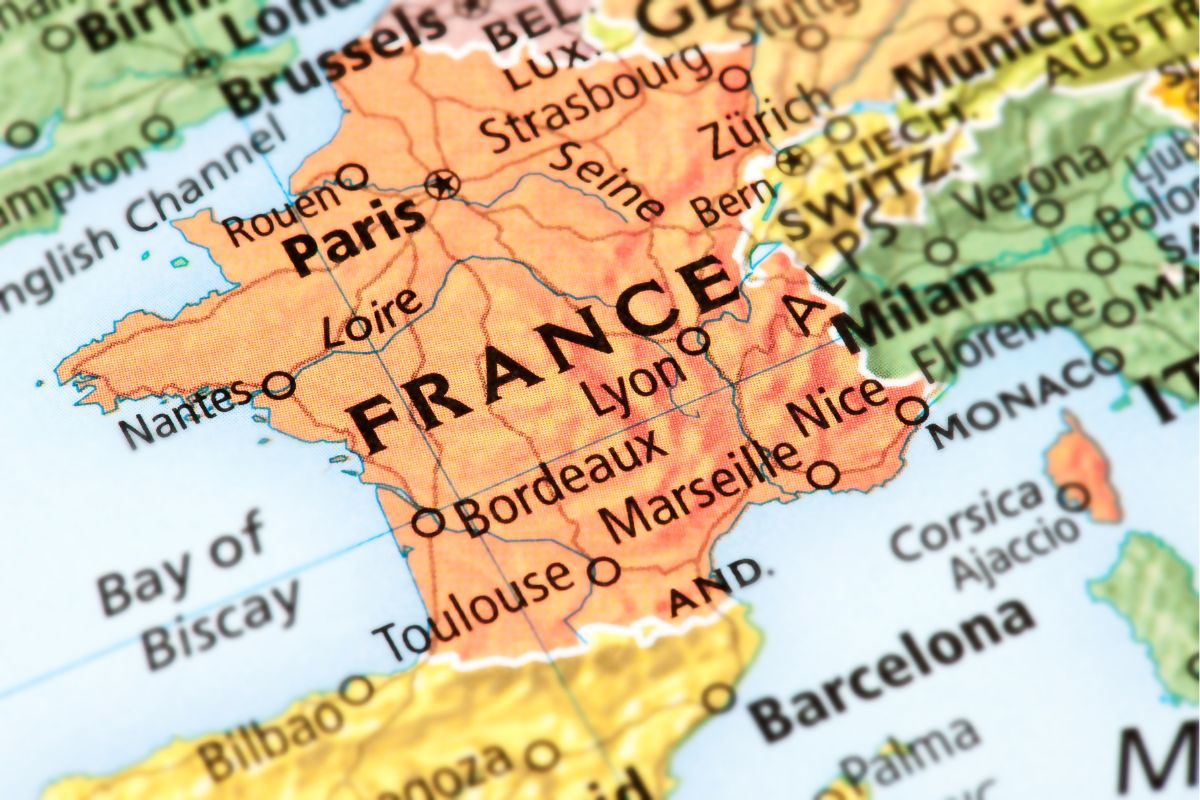France is a great place to live and I’ve enjoyed every minute of my 25 years here. It’s not always easy living in a foreign country, especially in light of the Anglo-Franco relationship through the centuries (I had never realised that the French were so upset about what the English did to Jean of Arc until I joined the events committee in my village), but there are things we can do to make it is a little easier.
10 Golden Financial Planning Rules For Expats in France
By Richard McCreery
This article is published on: 19th March 2025

I always recommend expats learn to speak at least a little French and tell them not to worry about making mistakes. An attempt to communicate is always appreciated even if your grammar isn’t perfect. Always say ‘Bonjour’ upon entering a shop or a lift, ‘Au revoir’ when leaving. We might not always do it in the UK but some French people get really annoyed if you forget. And always look both ways when crossing the street, even if it is one way. French drivers often treat the rules of the road more like guidelines.
Expats coming to live in France should also not assume that the French approach to finances and taxes are similar to where you’ve come from. If we think about how complicated these subjects are even in our home country, then you won’t be surprised to hear that they may not be entirely straightforward in France either. Often there are differences that you might never have considered, some are small but some are so substantial that they could add up to hundreds of thousands of Euros.
That is why I’m going to share a few tips for managing your finances and making life in France smoother and less stressful.
- Use a Livret A or LDDS for your emergency fund – these are government-regulated bank accounts with a fixed rate of interest that is tax-free. As part of your financial planning, I always recommend you have an easily-accessible emergency fund in case you need it at short notice. These accounts currently pay 2.4% – not much, but better than nothing and always available.
- Consider transferring UK assets to France – Some Brits living in France may have left savings and investments back in the UK and therefore would be liable for tax on income and capital gains. By holding this money in French-compliant products instead, you could save yourself from paying tax unnecessarily, and still enjoy a very wide range of investment options (with paperwork in English).
- Ensure your French investments are tax efficient – Assuming you have brought investments or savings to France, are they now in the most tax-efficient vehicles? Some popular investment accounts are subject to taxes that could easily be avoided. Tax-efficient savings and investment vehicles may have limits on how much you can put in, but make sure you maximise the use of these as far as possible to reduce your French tax bill.
- Think about planning your inheritance as early as possible – France’s inheritance taxes can be onerous and the basic allowances can be swallowed up quickly if you own property or other substantial assets. However, by using the correct structure and planning techniques as early as possible, families can smoothly pass assets to their loved ones and potentially save hundreds of thousands of Euros that would otherwise go in tax.
- Don’t forget to declare foreign accounts, income and trusts – Foreign bank accounts should be declared with your income tax declaration each year, regardless of whether they are empty or pay much interest. Failure to do so can result in big fines and they are far more common than you might think. Equally, if you have any links to a trust, there are strict reporting requirements in France.
- Shop around for general insurance – Over the years it has become increasingly simple to cancel your existing car, home, scooter or health insurance in order to switch to another provider. By using the major comparison websites, I’ve found that you can save hundreds, if not thousands, of Euros by regularly checking what the insurance market is offering.
- Speak to an expert before taking pension benefits – Whilst you can take a tax-free lump sum at retirement in the UK, the situation is different if you are resident in France. Before accessing your pensions or making a transfer, you should speak to someone who can explain the consequences relevant to your personal situation or it could be costly.
- Understand how your marriage regime is treated – France recognises several different types of marriage regime and they can be treated differently for tax purposes. Before making investments, gifts or any other significant financial transactions between spouses, you should speak to an expert in order to avoid potential tax liabilities down the road.
- Own your own home if you can – I always include this because for many people the 100% capital gains tax allowance you get on the sale of your main residence could be the biggest tax break you ever get. French house prices have risen 27% during the past decade. In fact, the French stock market has risen even more, 61%, hence why it is important to ensure your financial investments are also rolling up tax-free.
- Take advice from a regulated professional with cross-border experience – Financial planning can make you money and it can save you money. But understanding the implications of assets and taxes in more than one country is extremely complicated and requires professional assistance. Give yourself an advantage and get in touch! I am here to help.
ESG and Impact Investing
By Richard McCreery
This article is published on: 8th October 2024

Impact investing is increasingly becoming an important element of ESG-orientated investment portfolios.
Many people are familiar with the concept of sustainable investing, where a company may incorporate Environmental, Social and Governance (ESG) principles into its decision-making and risk management.
The aim is to promote positive long-term values that should improve the way a business is run by aligning its interests with those of society.
For example, in order to improve its effect on the environment, a company may introduce measures to reduce its carbon footprint, to minimize the use of finite resources or to eliminate waste. To improve the way it plays its part in society, it may insist on minimum standards in labour practices in its supply chain, it may introduce policies to expand its gender diversity or it may fund projects that build its standing in the community. When considering governance issues, a company might focus on how it balances executive compensation with performance, it might assess how ethical its operations are or it may improve transparency in its financial reporting.
Over the long term, it is believed that a more principled company culture that ultimately makes it more sustainable will improve the financial performance of that business, creating a win-win for all stakeholders. That is why the global ESG investing market was estimated to have grown to more than $25 trillion in size by 2023.
Sustainable investment funds that invest in a range of underlying companies may choose to exclude certain industries or sectors that don’t comply with ESG principles, such as gambling, tobacco or controversial weapons. But they may also choose to favour companies that have a strong ESG rating, that have made a conscious efforts to develop better behaviour along defined guidelines, such as those laid out in the United Nations 17 Sustainable Development Goals.
Impact investing goes one step further, because it favours companies that intentionally make a measurable positive contribution towards solving environmental or social problems alongside a financial return. It fills a funding gap when traditional philanthropy and government aid might be insufficient. Investments could be in healthcare, education, recycling, social housing, sustainable agriculture or climate change action. For example, investing in a renewable energy company could positively impact climate change, whilst investing in a plant-based meat company could positively impact public health and the environment.

Today, fund managers can incorporate impact investing into their sustainable funds or as part of an overall ESG strategy, ensuring that investors have the opportunity to make a financial return and generate a positive return for society. As you would expect, the addition of investment criteria other than just financial performance means that more work has to go into researching and selecting the best investments. However, clients can gain exposure through individual funds or managed portfolio services that offer liquidity, expertise and ongoing monitoring to ensure that goals are met and principles are adhered to.
If you would like to find out more about how to align your investments with ESG criteria and make impact investments, please get in touch.
At Spectrum, whilst we are committed to offering comprehensive solutions for sustainable investing, we also believe that all clients should decide freely on how to allocate their capital. We recognise too that no single, simple solution exists for how to invest responsibly. For these reasons, we include responsible investment discussion in our advice process but do not impose personal or corporate views.
British expats living in France may soon pay no UK inheritance tax
By Richard McCreery
This article is published on: 10th April 2024

Recently announced changes to the non-domicile system in the UK could be extremely beneficial for Brits living in France.
The Chancellor of the Exchequer, Jeremy Hunt, said in his Budget speech in March that the government intends to reform the existing Inheritance Tax scheme which is based on domicile rather than residency. In legal terms, your domicile is considered to be the country to which you have the strongest ties and that is often simply due to the fact that you were born there.
Relinquishing your UK domicile is very difficult, even if you have lived outside of the country for many years. Domicile tends to be permanent, unlike residency for tax purposes which changes according to your home, your centre of interests and where you spend most of time throughout the year. The Teflon-like nature of domicile means that the UK can still apply its 40% rate of Inheritance Tax to your estate when you die and, at the same time, all your worldwide assets can fall into the scope of French inheritance tax if you live full-time in France.
However, from April 2025 this situation should change so that British expats in France will no longer be taxed in both countries if they have lived abroad for more than 10 years and they have no assets in the UK. The detail is not yet set in stone, but this is our current understanding of how the new rules will work. The changes might encourage some people to consider moving assets out of the UK in order to avoid any liability there, and the government knows this, so we’ll have to see the finalised details before we can judge how beneficial the changes really are. The prospect of a new party in government following this year’s general election also adds a further element of uncertainty about what the rules will eventually look like.

France also applies Inheritance Tax at rates that can be quite punishing in some circumstances. Beneficiaries can inherit a defined amount of money tax free, depending on their relationship to the deceased, but these allowances can be swallowed up quite quickly, especially where a property is included in the estate. Fortunately, France does provide residents with some very attractive ways to reduce any such tax bill and with the right advice an ordinary family can shelter hundreds of thousands of Euros from Inheritance Tax.
If you would like to discuss your family’s estate planning, or any other financial issues that are important to you, please get in touch to arrange a no-obligation meeting or conversation.
Happy New Year 2054
By Richard McCreery
This article is published on: 4th January 2024

A tongue in cheek look at the world
three decades from now
The year is 2054. The Trump family presidency is about to enter its fourth decade of ruling power, with Ivanka in charge ever since her father abolished the 22nd amendment of the US constitution that limits anyone to two terms.
Today, the government has a 99% approval rating, according to the state-sponsored broadcaster Fox News, and the Trump family continue to win each election in a landslide, having introduced new rules to make the voting system fair and honest following the collapse of the Biden regime.
However, America is not the technological superpower it once was, having stubbornly doubled down on the use of oil, coal and gas whilst the rest of the modern world switched to clean, abundant renewable energy and electric cars. The technology-hating president Donald Trump eventually decided that the Big Tech billionaires such as Bezos, Zuckerberg and Musk were getting too big for their boots and nationalised their companies, declaring that it was his duty to the people to use his talent for business to run them himself. This move ushered in a new kind of capitalism as their huge profits were directed to fund the collapsing social security system, the construction of border walls sealing off America from Canada and Mexico, and enabling the Trump White House to install gold-plated toilets in every room, making it the envy of African dictators and footballers wives.
The US national debt has climbed to $340 trillion, a tenfold increase since The Donald regained power in 2024, but the Fed has kept interest rates at zero for most of the past three decades. The US Treasury has been able to fund the debt by creating a series of $1 trillion digital coins and by selling NFT trading cards. As a result, the ‘Trump’, the new name for the US Dollar, is one of the weakest currencies in the world – you currently get 250 Trumps to the Euro. The Trump administration has managed to stave off financial collapse by regularly threatening to ‘renegotiate’ America’s sovereign debt with its creditors, a scenario that everyone wants to avoid.
Whilst America has begun to resemble a strange version of Cuba or North Korea, Europe has enjoyed a surprising renaissance, thanks to its early adoption of artificial intelligence as a key element of government. For once, the hype turned out to be real (albeit 15 years after the first AI stock market bubble had popped) and AI advanced rapidly as it was entrusted to take over from politicians. A new law in 2035 stating that anyone who expressed a desire to go into politics would immediately be banned from going into politics meant that a new way to govern had to be found. By harnessing AI for the common good, rather than allowing it to be controlled by a few large companies or rich individuals, Europe has been able to rebuild its infrastructure, increase the leisure time of its working population with the introduction of the 3-day week and overtake the US and Asia in the development of new virtual reality worlds where most retired people now spend their final years – it has become possible to see the world, live out your dreams and fulfil your fantasies, all without leaving the comfort of your armchair.

Norway has become the most admired nation in the world, an example of good resource management and social equality. It’s oil fields were eventually depleted but, unlike other oil-rich nations like Saudi Arabia and Russia, Norway had invested its wealth for future generations into thousands of companies around the world. As the only country to have virtually no debt, Norway’s Krone has since taken the place of the US Dollar as the world’s reserve currency.
The Krone has gold-like limited supply, is backed by real wealth and an economy powered by an abundance of clean thermal and hydro electricity. In 2031, Norway became the first country in the world to have an all-electric transport system, having waved goodbye to petrol engines long before anyone else. It’s cooler climate has also made it one of the world’s most popular holiday destinations now that parts of the Mediterranean region have become too hot to support life outdoors during the summer months.
Technological advances in the early 2040’s mean that global poverty, water shortages and hunger around the world may soon become a thing of the past. The spread of AI-powered nanobots throughout industry and agriculture has increased productivity by thousands of degrees of efficiency. No longer is output restricted by physical human strength, labour laws, poor education, the need for holidays or sick leave. Tiny machines that are able to reproduce as the work requires are now populating factories and fields in vast numbers, freeing humans from the slavery of the daily struggle to feed themselves or earn a living. This new workforce has massively increased our efficiency when using finite natural resources, it has created a recycling movement that ensures nothing is wasted and has generated an abundance of goods and services.

Education is now available to anyone who is connected to the world wide web, which these days is everyone. Society’s best teachers no longer stand in a lecture hall in Cambridge or Harvard, educating only a few privileged students. Today, they are treated like rock stars as they broadcast their lessons around the world to millions of people at a time, giving students everywhere the chance to be taught by the best in their field. However, despite a leap in global education levels, AI has not been able to come up with a way to genetically eliminate stupidity, even if it is now recognised as a medical condition for insurance purposes.
Instead, advanced neuroscience technology, first brought to the mass market by Elon Musk, allows a person to switch between their original brain and a Tesla artificial brain that is installed alongside. The new technology is prone to make mistakes and somewhat fails to live up to the hype but it is very popular thanks to its ability to allow the user to function in ‘self driving’ mode and switch off their real brain.

War has largely been eliminated in 2054. The spread of the internet to every part of the globe helped people of all nations and religions to bond and empathise with each other. For the first time in history, people were able to see and really understand how other people lived. They might not all agree with each other but the urge to kill has been reduced dramatically (except in America) and the need to occupy more territory has been negated by expansion into new digital universes and, soon, into space. The end of corruption in politics also meant that the world’s largest arms companies suddenly found themselves facing a demand shortage as government budgets were directed elsewhere, so they naturally directed their skills towards space exploration.
War isn’t the only thing that has been eliminated – so has smoking, alcohol, red meat, close human contact (unless you have a license), telling off children, boxing, speeding, fast food and swearing. The proliferation of cameras everywhere ensures the population remains polite and well behaved, much like Japan. Only the Clarksonites remain in defiance, an underground movement dedicated to preserving what they describe as the lost arts of fun, debauchery and common sense.
However, despite the relative sanitisation of humanity, in the year 2054 the future is looking bright. The stock market is up, house prices are up and most people around the world have food on the table and more tv programmes than they can ever watch. The depression years of the late 2020s, a hangover from the locked-down COVID era, have given way to a time of greater optimism, more peaceful co-existence and rising prosperity. Climate change has been arrested thanks to clean-tech, space travel is opening up new frontiers in human exploration and the virtual reality worlds are enabling new lives in the digital universe. It may not be perfect, but it is a lot better than anything the science fiction writers of the late 20th century were predicting.
Preparing for the inevitable
By Richard McCreery
This article is published on: 4th September 2023

A few tips on how planning ahead, as well as looking back, can make a difficult time much easier on our loved ones. It comes to us all, but we devote relatively little time to thinking about it: death.
Unsurprisingly, most people prefer to avoid thinking about their own mortality, but they are keen to ease the pain for loved ones who are left behind. In this short article I’ll take a look at some tips to make this time a little less hard on your family and I’ll even give you an idea of how you can leave behind a moment of happiness for your closest relatives.
Make ‘The Folder’
My colleague Gareth Horsfall has written about the importance of ensuring your paperwork is in order and stored where your relatives can find everything they’ll need to get through the formalities that inevitably ensue from your passing. The Folder is a central location (digital, physical or both) where you keep a record of all your assets, your bank accounts, your pensions and investments, as well as a copy of all your important documents like birth certificates, marriage certificates, your social security number etc. And, finally, a list of all your internet and device passwords, of which there could be a lot!
Modern life can be extremely complicated whilst we are still alive and it becomes even more so when you have to deal with someone else’s affairs that may not be entirely familiar to you. By collecting all the important paperwork and information in one place, you can ease the inevitable administrative burden and show your loved ones that you were thinking about them. And don’t forget to tell them where they can find The Folder.

Close old overseas accounts and companies
I was once asked to help the wife of a client to deal with some of the inheritance formalities that were required for the settlement of his estate after he died. Wealthy people often have assets in various countries and this can lead to significant extra time and expense when attempting to transfer everything from the deceased’s estate to the beneficiaries.
For example, the ownership of a British Virgin Islands company can’t be transferred to someone else before probate is granted in that jurisdiction, which entails securing the services of a local qualified lawyer. If that company is no longer needed once the deceased is gone then further fees will be incurred in BVI for closing that company. Multiply this scenario across various foreign jurisdictions and it can become quite costly and time consuming in order to settle the full estate.
Conclusion: if you can simplify your affairs by closing underutilized overseas companies or dormant bank accounts, it can save your family a lot of hassle and money later.
Avoid paying more tax than is necessary
Ironically, inheritance tax is a fact of life. It is often only considered when it has to be paid and it can be surprisingly substantial – in France a house can swallow up any allowances you may benefit from, leaving the remainder to be taxed at up to 45% for children and up to 60% for non-family beneficiaries. By using an assurance vie policy as a vehicle for managing some of your wealth you can substantially increase the tax-free sums your loved ones inherit, they may pay a lower tax rate on the amount that is taxed, you can use the beneficiary clause to choose who gets what and the money can grow free of tax during your lifetime if not withdrawn.
Everyone hates paying inheritance tax, so when you know that your children can inherit an extra 152,500€ each tax-free if the money is coming from an assurance vie policy, it quickly becomes apparent how much you can save them (don’t forget: in order to get the maximum benefit, you should start your policy before you turn 70). They say there are only two things that are certain in life: death and taxes. Whilst you can’t avoid the first, your family might avoid the second with a bit of foresight and planning.
Finally, leave them something really personal
You’ve finished tidying up the loose ends of your life, you’ve done all you can to minimize the tax your family will pay and your affairs have been put ‘in order’. You have made every effort to ensure your passing will be as little of a burden on your beneficiaries as is possible, you have made a difficult time less difficult by thinking ahead. There is also a way to use this moment to bring some joy into the lives of those who love you: by thinking back on your life.
A memory journal is a little treasure that helps you to record some of the most precious moments of your life, to be passed on to your children or grandchildren. It is a guided book that contains prompts and questions such as ‘How did you meet my mother?’, ‘What was your favourite subject at school?’, ‘Tell me about the happiest or greatest memories of your life’ or ‘What did you feel when you first saw me after I was born?’ It gives you the opportunity to leave your family the story of your life, your most intimate thoughts and feelings, perhaps alongside a few photos.
Money and paperwork are important, they have to be dealt with. Put everything in order, in advance, and you will be doing your family a big favour. Leave them as much money as you can tax-free and you’ll ensure they will be better off. And finally, a few of your own words left alongside the admin makes this difficult time more bearable. These things are easily put off, you may not even want to think about them, but if you take action sooner rather than later, I promise you will never regret it.
If you would like to speak me about planning ahead and putting your family affairs in order, please get in touch. I’m here to help and happy to answer any questions with no obligation.
How is France doing?
By Richard McCreery
This article is published on: 17th May 2023

If you live in France, the general impression you might have is of a country that is dragged down by strikes and protests, that the cost of living is soaring and the dream of retiring whilst still young is under threat. But it is not all bad news. If you have investments in France, or are planning to retire here, there are several reasons to be cheerful about the state of the country.
Despite fears of a possible recession, France’s GDP grew 0.2% in the latest quarter and was 0.8% higher than a year earlier – not exactly blowing the lights out but coping reasonably well with Eurozone interest rates that have risen to 3.75%. In fact, you can still get a 20-year mortgage in France and pay less than 3%, so the housing market is not coming under the same pressure as it is in some countries like the US, where a typical mortgage now costs 6.5%, or Sweden, where house prices have fallen sharply.
At 7.2%, France’s unemployment rate is around the lowest level it has been for several decades. The more people in work, the better. Inflation may be historically high at 5.9% but this is lower than the Eurozone average of 7% and considerably less painful than the UK’s 10.1% rate. We were very lucky that the government capped energy price rises at 4% last year and 15% this year.
Where France has more of a problem is its debt levels, partly because of that low retirement age but also because of the government’s generosity during the pandemic, although France is hardly alone in this. France’s government debt-to-GDP ratio has swelled from 97% in 2019 to 111% today. It is because France’s national debt has grown to almost 3 trillion Euros, and because it is so hard for the government to do anything about it without triggering widespread rioting, that the rating agency Fitch recently downgraded the country’s credit rating to AA- (outlook: Stable). This still leaves it slightly better off than the UK, whose outlook is Negative.

But President Macron is making efforts to build on France’s substantial industrial base, asking Elon Musk and other business leaders to invest in the country. In fact, according to accounting firm EY, France is the most attractive country in Europe for foreign investment and has been for four years in a row. It is also the home of LVMH, which recently became the 7th largest company in the world, worth more than half a trillion Dollars, as well as Kering (the owner of Gucci) and Hermès. French luxury goods companies are the European stock market equivalent of Big Tech stocks in the US, they seem to go from strength-to-strength and have powered the CAC 40 to a record high this year. French banks also seem to have come through the recent turmoil in the sector relatively unscathed.
France has a great standard of living, it is the world’s number one tourist destination and the economy is on a fairly sound footing. Taxes are high, but residents also have access to very tax efficient investment vehicles that can reduce exposure to income tax and inheritance tax, with the right planning and advice. There is a lot to be said for investing in the EU’s second largest economy. Despite the burning barricades on the nightly news, France is doing fine right now.


